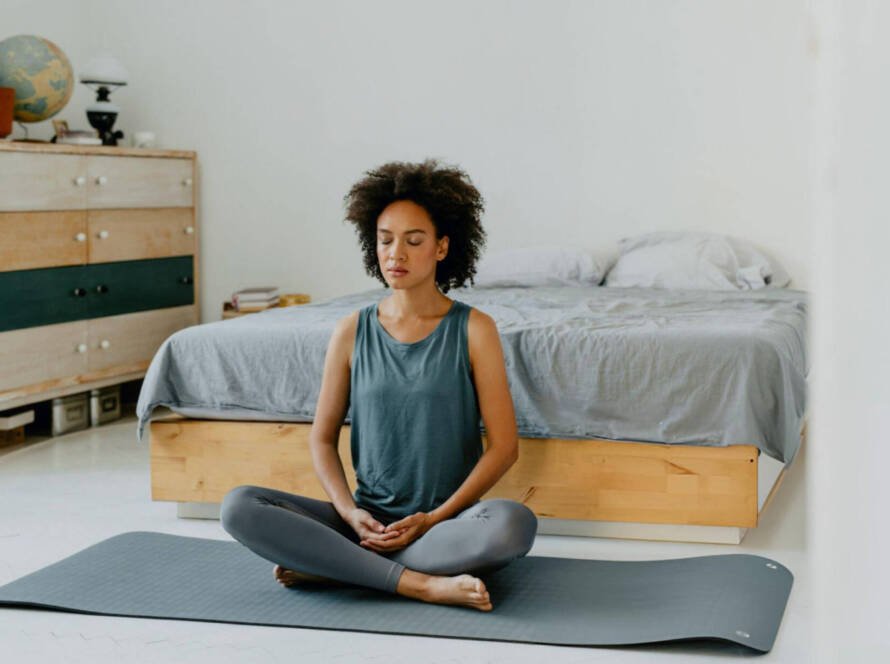If you’ve ever tossed and turned through countless sleepless nights, you know the deep frustration and fatigue that follows. But what if there’s more at play than just feeling tired? Many people are surprised to learn there’s a link between sleep apnea—a condition that disrupts your breathing during sleep—and anxiety.
Table of Contents
The question “Can sleep apnea cause anxiety?” is more common than you might think, and exploring this connection can be both enlightening and empowering. Understanding the interplay between these two conditions may unveil a path toward improving not just your sleep, but your overall mental well-being too. Let’s explore how these seemingly separate issues are interconnected and discuss the steps you can take to address them both.
Understanding Sleep Apnea and Its Effects

Sleep apnea is a common yet serious sleep disorder where breathing repeatedly stops and starts during sleep. This disruption can wreak havoc on your rest and overall health. Imagine someone pinching your nose every few minutes while you’re trying to sleep—that’s what happens when your airway gets blocked during sleep apnea episodes.
Physiologically, sleep apnea can lead to oxygen deprivation, affecting brain function and stress levels. The body may jolt awake to resume breathing, resulting in fragmented sleep. Common symptoms include loud snoring, gasping for air during sleep, morning headaches, and excessive daytime sleepiness.
Can Sleep Apnea Cause Anxiety?

Is there a direct connection between sleep apnea and anxiety? Scientific studies suggest there could be. One study found that individuals with untreated sleep apnea were more likely to develop anxiety disorders over time. The recurring interruptions in sleep can elevate stress hormones like cortisol, contributing to heightened anxiety.
When you’re unable to achieve restful sleep, it’s no surprise that anxiety levels escalate. Lack of quality sleep impairs your body’s ability to cope with stress, making everyday challenges seem insurmountable.
The Symptoms of Anxiety in Sleep Apnea Patients

Anxiety in sleep apnea patients often manifests in several ways. These can include but are not limited to, excessive worry, irritability, difficulty concentrating, and restlessness. For some, the anxiety may be mild, while for others, it can be debilitating, significantly impacting their quality of life.
The intensity of these symptoms can vary. Some days might feel manageable, while others could leave you feeling overwhelmed. Recognizing these symptoms is crucial in understanding the broader impact of sleep apnea on mental health.
Expert Opinions on Sleep Apnea and Anxiety
Healthcare professionals agree that there is a notable relationship between sleep apnea and anxiety. Experts point out that oxygen deprivation can trigger a stress response in the body, leading to a cascade of physiological changes that elevate anxiety levels.
Dr. Jane Smith, a sleep specialist, explains, “The constant interruption of sleep means the brain never fully rests, leading to a heightened state of alertness and, subsequently, anxiety.” Another theory is that the stress of dealing with sleep apnea symptoms themselves contributes to increased anxiety.
Managing Anxiety Related to Sleep Apnea

Improving sleep quality is a vital step toward managing anxiety linked to sleep apnea. Here are some tips to get started:
- Lifestyle Changes: Adopting healthier habits can have a profound impact on sleep quality. Engaging in regular physical exercise helps regulate the body’s internal clock and reduce stress, which in turn promotes better sleep. Maintaining a balanced diet rich in nutrients ensures your body has the necessary fuel for optimal function during the day and aids relaxation at night. It’s also important to avoid consuming caffeine or alcohol before bed, as these substances can interfere with the natural sleep cycle by disrupting the brain’s ability to transition into restful sleep stages.
- Sleep Hygiene Practices: Establish a consistent bedtime routine by going to bed and waking up at the same time every day, even on weekends. Limit screen time before bed to reduce exposure to blue light, which can interfere with your natural sleep cycle. Create a peaceful sleeping environment by ensuring your bedroom is dark, quiet, and cool, and consider using blackout curtains or a white noise machine to enhance sleep quality.
Various treatment options for sleep apnea can also alleviate anxiety symptoms. Continuous Positive Airway Pressure (CPAP) therapy is one of the most effective treatments. It keeps your airway open during sleep, reducing interruptions and improving rest.
Additionally, seeking professional help is crucial. A healthcare provider can offer tailored treatment plans for both sleep apnea and anxiety, ensuring comprehensive care.
Final Thoughts

Both sleep apnea and anxiety are conditions that can significantly impact your life, affecting everything from your daily energy levels to your mental well-being. Sleep apnea, characterized by interruptions in breathing during sleep, can lead to daytime fatigue and impaired cognitive function. Anxiety, on the other hand, involves excessive worry and stress that can disrupt your peace of mind and overall quality of life.
Addressing these conditions is not only vital for better sleep but also for improved overall health. Lack of proper sleep due to sleep apnea can exacerbate anxiety symptoms, creating a cycle that can be challenging to break. Furthermore, anxiety can lead to insomnia or restless sleep, further affecting your physical and mental health.
If you suspect you’re dealing with either condition, consulting a healthcare provider is a wise first step. A proper diagnosis can lead to effective treatment plans, whether they involve lifestyle changes, therapy, or medical interventions. By understanding the link between sleep apnea and anxiety, you can take proactive measures to manage both conditions. Implementing practices such as regular exercise, mindfulness, and a consistent sleep routine can help mitigate symptoms.
Better sleep is within reach, and with it, a calmer, more balanced life. Taking charge of your health by addressing these issues can lead to significant improvements, not just at night, but in your day-to-day activities as well.





